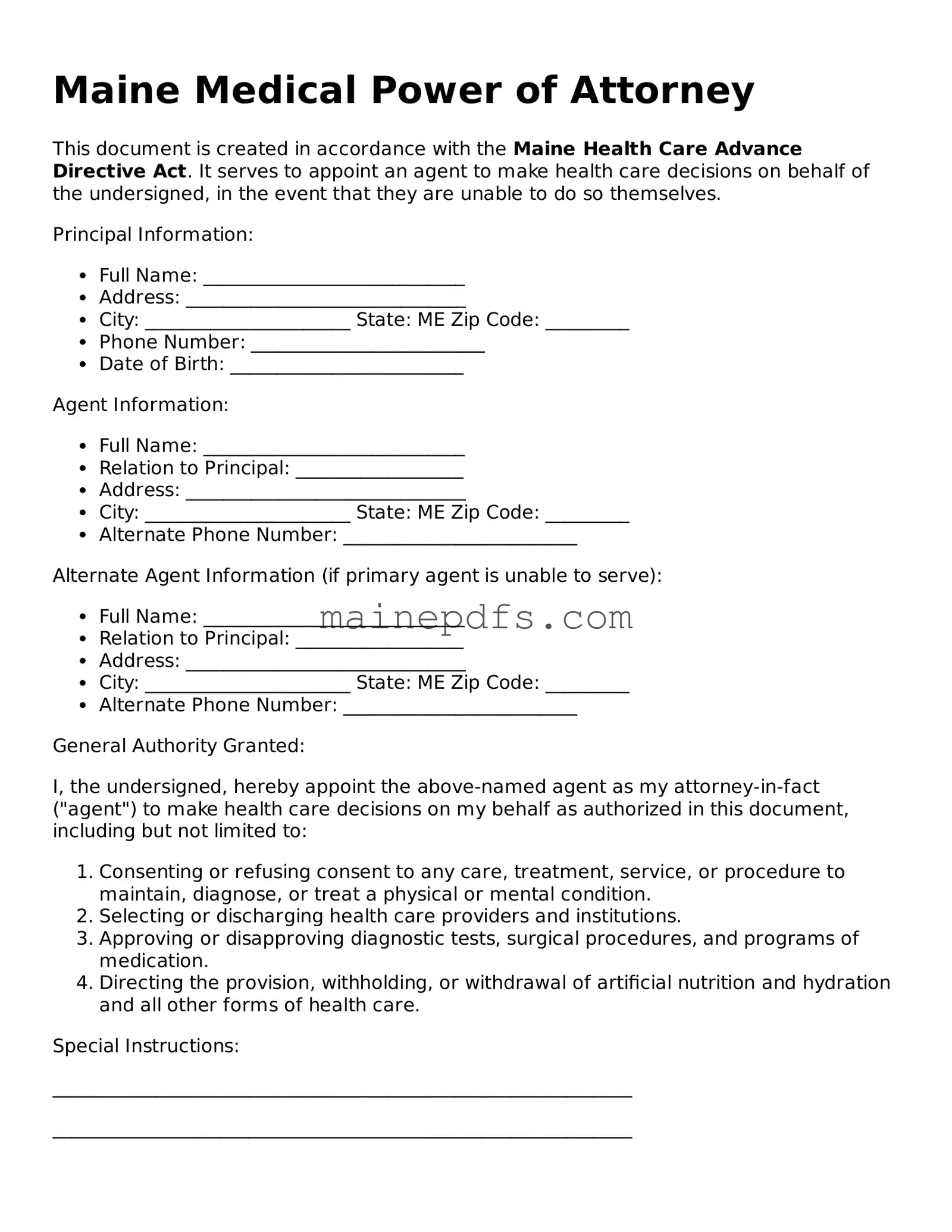Maine Medical Power of Attorney
This document is created in accordance with the Maine Health Care Advance Directive Act. It serves to appoint an agent to make health care decisions on behalf of the undersigned, in the event that they are unable to do so themselves.
Principal Information:
- Full Name: ____________________________
- Address: ______________________________
- City: ______________________ State: ME Zip Code: _________
- Phone Number: _________________________
- Date of Birth: _________________________
Agent Information:
- Full Name: ____________________________
- Relation to Principal: __________________
- Address: ______________________________
- City: ______________________ State: ME Zip Code: _________
- Alternate Phone Number: _________________________
Alternate Agent Information (if primary agent is unable to serve):
- Full Name: ____________________________
- Relation to Principal: __________________
- Address: ______________________________
- City: ______________________ State: ME Zip Code: _________
- Alternate Phone Number: _________________________
General Authority Granted:
I, the undersigned, hereby appoint the above-named agent as my attorney-in-fact ("agent") to make health care decisions on my behalf as authorized in this document, including but not limited to:
- Consenting or refusing consent to any care, treatment, service, or procedure to maintain, diagnose, or treat a physical or mental condition.
- Selecting or discharging health care providers and institutions.
- Approving or disapproving diagnostic tests, surgical procedures, and programs of medication.
- Directing the provision, withholding, or withdrawal of artificial nutrition and hydration and all other forms of health care.
Special Instructions:
______________________________________________________________
______________________________________________________________
(Use the space above for any specific limitations you wish to place on your agent's authority, the nomination of your primary physician, or other special instructions.)
Signatures:
This document must be signed by the principal or at the direction of the principal in the presence of two or more adult witnesses, neither of whom is the agent.
Principal's Signature: ______________________ Date: ____________
Witness 1 Signature: ______________________ Date: ____________
Printed Name: _____________________________
Witness 2 Signature: ______________________ Date: ____________
Printed Name: _____________________________
State of Maine Acknowledgment:
This document was signed in my presence by the above-named principal or at the direction of the principal. I am not the agent or a health care provider for the principal.
Notary Public Signature: __________________ Date: ____________
My commission expires: ____________________

